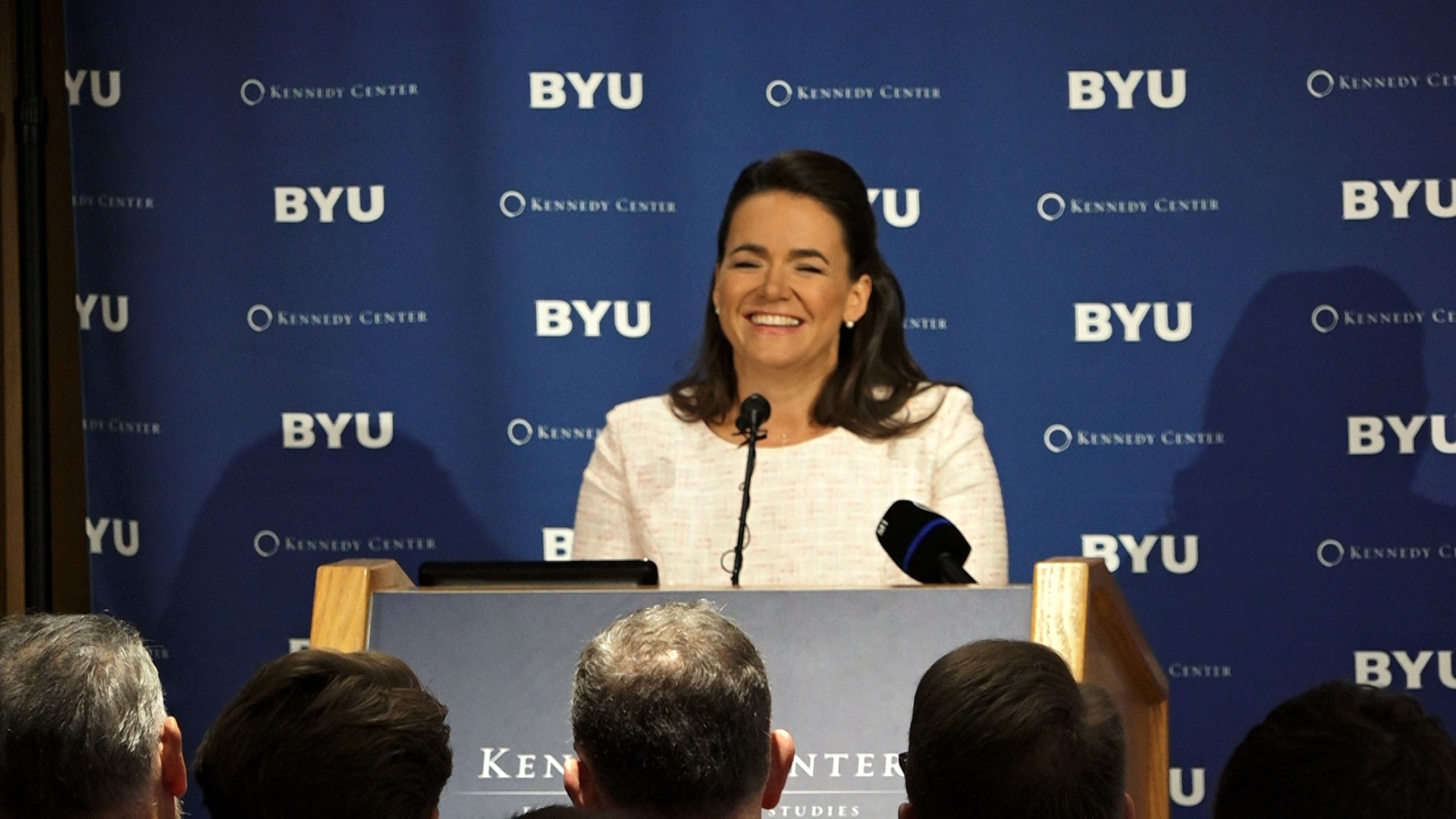
Katalin Novák, president of Hungary, spoke to a group of students, faculty and press in the Kennedy Center on Sept. 26, 2023. She spoke on her experience balancing career and family as well as Hungary’s efforts to solve the demographic crisis.
Novák has been the president of Hungary since Oct. 2022. She is the first woman and youngest person to hold the position, according to Quinn Mecham, associate professor of political science.
She recently returned from New York City, where she represented Hungary at the United Nations General Assembly. There, she spoke about Hungary’s priorities, the family as a key to national security and a “clarion call for peace in Eastern Europe,” according to Mecham.
She said she was the first woman to take the floor after six hours.
Novák said the reason for her address to university students is her commitment to the rising generation.
“I decided … when I was elected a year and a half ago that I would like to seize the chance to meet you … the members of the generation who can change our future,” Novák said.
She spoke about demographic issues among developed countries and said Hungary has seen a demographic decline since 1981, meaning that the birth rate is lower than the death rate.
Novák said that because of this demographic issue, Hungary has focused policies on families. She quoted the Hungarian constitution, which contains a section about family values.
“Hungary shall protect the institution of marriage … and the family as the basis for the survival of the nation,” she said.
Hungary also puts policies in place to support families, including free childcare, three years of paid parental leave shared between both parents and student loan forgiveness. The more children you have, the less income tax you pay, Novák said.
“We try to have a real freedom of choice for women … either to have their family life as a stay at home mom, or to fulfill their professional dreams or to do the two at a time,” she said.
Novák said that in more than a decade of having these policies, the number of marriages doubled, abortion rates decreased by half and the fertility rate increased by 30%.
Despite these resources, Novák said she faced the difficulty of balancing her career and her family after having her first child in 2002. At times she was not doing enough to fill either role, she said.
She chose to stay home with her next two children, then returned to work six years later in 2010.
A professional career is not worth giving up on having a family, she said. A career will always be there later on, she said, but the chance to have a family might not.
“Don’t be scared that you won’t be able to fulfill your professional dreams, don’t be scared that you won’t be a good mom … don’t be afraid of having a family, of having kids and saying yes to life,” she said.
Novák said motherhood helps keep her grounded and has taught her important skills that she implements in her career.
“Negotiating with a teenager is not any easier than negotiating with your political opponents,” she said.
As a Christian, Novák said she doesn’t feel alone in her position because she relies on Jesus Christ and nurtures her faith on a daily basis. Her faith is especially sacred to her because she had to hide it growing up under communist rule.
To be truly tolerant of other beliefs and cultures, one must accept their own identity, she said.
Rachel Hawks, an international relations student at BYU, said she appreciated hearing from a dignified woman in politics who is true to her personal beliefs.
“As a woman who wants to go into that, she’s a new role model for me,” Hawks said.
Following the meeting, Novák attended appointments with university administration, according to Mecham.




